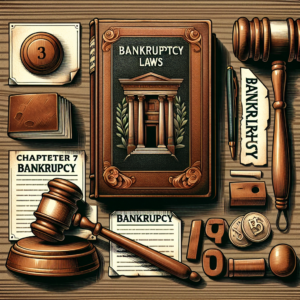Unprecedented Court Rulings: Legal Shifts That Will Change Everything
In recent years, the judiciary has witnessed a series of unprecedented court rulings that have sparked intense debate and speculation about their long-term implications. These landmark decisions have not only redefined legal interpretations but have also raised critical questions about civil rights, economic practices, and the overall trajectory of governance. As courts navigate complex social and political landscapes, the ramifications of their rulings extend far beyond the courtroom, influencing legislation and societal norms. This article explores the context of these legal shifts, key precedents, their implications for civil rights, economic consequences, and predictions for the future legal landscape.
Understanding the Context: The Rise of Unprecedented Court Rulings in Modern Law
The contemporary legal environment is characterized by a growing trend of unprecedented court rulings that challenge established norms and interpretations. This shift can be attributed to several factors, including increased polarization within the political landscape, evolving societal values, and the advent of technology that complicates traditional legal frameworks. Courts are increasingly called upon to address issues that were previously considered outside their purview, such as digital privacy, climate change, and systemic inequality. As judges grapple with these complex issues, their rulings often reflect a departure from conventional legal doctrines, leading to significant shifts in the interpretation of laws that govern society.
Key Legal Precedents: Landmark Cases That Have Redefined Judicial Interpretations
Several landmark cases have emerged as pivotal moments in the evolution of modern law, setting new legal precedents that will likely influence future rulings. For instance, the Supreme Court's decision in Dobbs v. Jackson Women’s Health Organization overturned the long-standing precedent established by Roe v. Wade, fundamentally altering the legal landscape surrounding reproductive rights in the United States. Similarly, cases such as Bostock v. Clayton County have expanded the interpretation of civil rights protections under Title VII of the Civil Rights Act to include sexual orientation and gender identity. These cases exemplify how judicial interpretations can evolve, prompting a reevaluation of existing laws and their applications in contemporary society.
Implications for Civil Rights: How Recent Rulings Affect Individual Liberties and Protections
The recent wave of unprecedented court rulings has profound implications for civil rights, particularly concerning individual liberties and protections. As courts reinterpret constitutional rights, marginalized communities may find themselves either empowered or further disenfranchised. For example, the rollback of reproductive rights has raised alarms among advocates for women's rights, who argue that such decisions undermine bodily autonomy and equal protection under the law. Conversely, rulings that expand civil rights protections for LGBTQ+ individuals signal a progressive shift towards inclusivity. The tension between these opposing outcomes highlights the precarious nature of civil rights in an evolving legal landscape, necessitating vigilant advocacy to safeguard individual liberties.
Economic Consequences: The Impact of Court Decisions on Business and Regulatory Practices
The economic ramifications of unprecedented court rulings are significant, affecting both businesses and regulatory practices across various sectors. Decisions that alter the legal framework surrounding labor rights, environmental regulations, and corporate accountability can reshape market dynamics and influence business strategies. For instance, rulings that limit the ability of states to impose regulations on businesses may lead to a more laissez-faire economic environment, while those that uphold stringent environmental protections could impose additional costs on industries reliant on fossil fuels. As businesses navigate this uncertain legal terrain, they must adapt to new regulatory realities, which may drive innovation or stifle growth depending on the nature of the rulings.
Future Legal Landscape: Predictions on How These Rulings Will Shape Upcoming Legislation
Looking ahead, the trajectory of upcoming legislation will likely be influenced by the precedents set by recent court rulings. As lawmakers respond to judicial interpretations, we may see a push for new laws aimed at either reinforcing or counteracting the effects of these decisions. For instance, in response to the erosion of reproductive rights, states may introduce legislation to protect access to abortion services, while others may seek to impose stricter regulations. Additionally, the ongoing debates surrounding digital privacy and technology regulation will likely prompt legislative action as courts continue to grapple with these complex issues. The interplay between judicial rulings and legislative responses will shape the future legal landscape, creating a dynamic environment that requires constant adaptation.
The unprecedented court rulings of recent years have ushered in a new era of legal interpretation that will have lasting effects on society and governance. As courts continue to navigate the complexities of modern issues, the implications of their decisions will resonate across civil rights, economic practices, and legislative initiatives. The evolving legal landscape demands that stakeholders remain vigilant and engaged, as the outcomes of these rulings will ultimately define the rights and responsibilities of individuals and institutions alike. As we move forward, the challenge will be to ensure that the principles of justice and equality are upheld in a rapidly changing world, fostering a legal system that reflects the values and needs of all members of society.
